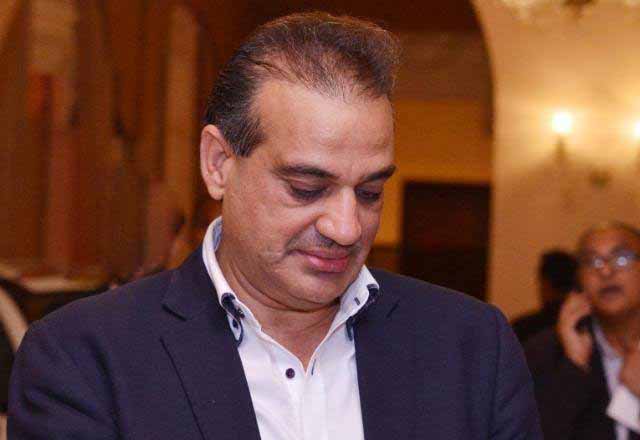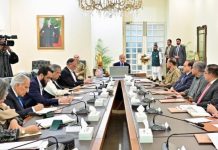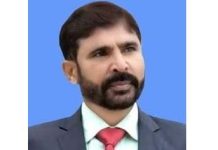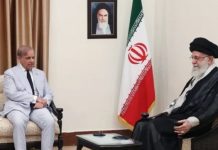Supreme Court to resume hearing tomorrow; audio leaks continue to cause ripples
Analysis
Ansar M Bhatti
ISLAMABAD: The Prime Minister Shehbaz Sharif has convened a meeting of the allied parties on Wednesday to chalk out future strategy. The Prime Minister is also likely to chair the cabinet meeting today. The government perhaps has a clear understanding that the apex court may not give it more time if it fails to release Rs 21 billion funds for the Election Commissioner of Pakistan. The apex court had ordered the government to release these funds by April 27. The PM, during his meetings with allies and cabinet members, intends to take them into confidence before making any decision.
Legal experts strongly believe that non-issuance of funds to the ECP shall constitute a perfect case of contempt of court against the sitting prime minister and a few ministers if not against the entire cabinet. The Supreme Court, hitherto, has exercised restraint by not initiating the contempt proceedings despite the fact, prima facie, contempt was committed when the government had refused to release funds and referred the matter to the parliament. It was ostensibly a delaying tool on the part of the government to get some time although this gimmick seems to have proved counterproductive.
The apex court in its last hearing had pointed out that defeat of the money bill in the parliament would mean that the prime minister has lost majority in the House. The court observation came as a shock for the government, which, probably, had not mulled this consequence while managing defeat of the bill in the Parliament. In that backdrop, the prime minister announced on April 24 that he will seek a vote of confidence in the National Assembly, however after a few hours the Information Minister appeared on the national hook-up to rule out this possibility. Any attempt to get a vote of confidence may prove fatal at this particular stage when the allies and the so-called opposition led by Raja Riaz, may not be on the same page. So, at least from the government point of view it was a wise decision.
As time passes by, the possibility of holding elections in Punjab on May 14 is becoming uncertain. While there is no denying the fact that all elections should take place at the same time, the stakeholders need to show flexibility in order to make it happen. The PTI may agree for a date other than May 14 however the ruling alliance is loath to show any leniency, for reasons known to everybody.
The Supreme Court proposed holding elections somewhere in July, which appears to be a plausible option. Constitutional experts believe the court may not allow elections to be delayed beyond July or maximum August. But the real question is even if all stakeholders agree on a date either in July or August, will the elections still take place?
This is of course a big question and there is only one party that could solve this riddle and that party is PTI. Undoubtedly, PTI is in a much better position to win a majority as compared with other parties. But the question is, can PTI victory rid the country of crises while remaining at the loggerheads with the Establishment? The answer is an affirmative No.
It is an open secret that the Establishment happens to be a key player in Pakistani polity hence it is simply not possible to ensure a smooth governance without its participation. The PTI leadership therefore have to develop a working relationship with the Establishment if it really wants to run government businesses smoothly in case it is able to form government as a result of general elections victory.
On the other hand, it looks as if the government is banking chiefly on the audio leaks for building its ‘anti-judiciary’ narrative. It is trying to prove that the judiciary has already made up its mind about what to do with the government. The government presumption is nothing but just a whim. The Constitution is clear about holding of elections within 90 days after dissolution of an assembly.
The PTI has hinted at another march in case elections do not take place on May 14 or parties fail to evolve a consensus on a July or August date. Already under too much pressure from the court orders and PTI criticism, the PPP volte face that it has nothing to do with the government’s performance seeks to have added to the woes of the Shehbaz regime. The Co-Chairman of PPP Asif Zardari has made it clear that he wants to see Bilawal as the next prime minister of Pakistan. And as a matter of fact the PPP special three member committee comprising Yousaf Raza Gillani, Naveed Qamar, Qamar Zaman Kaira met with the PDM parties in this regard. To begin with, the move indicated as if the PPP had jumped into the fray in order to bail out the Shehbaz government vis-à-vis Judiciary however the inside sources revealed that the main purpose of the drill was to gather support for Bilawal as the next prime minister in case Shehbaz Sharif had to leave office in contempt case. The PPP nevertheless was told point blank even if Shehbaz goes home, somebody from the PMLN would replace him.
Summing up, the only viable option to pull the country out of political and economic quagmire turns out to be holding of elections. People should be allowed to choose their future government. And perhaps so is the wish of the international donors and brotherly countries as well. A government with full five year term can surely be held accountable in case it fails to deliver. All stakeholders therefore need to leave obstinacy aside and think about the future of this country.

















